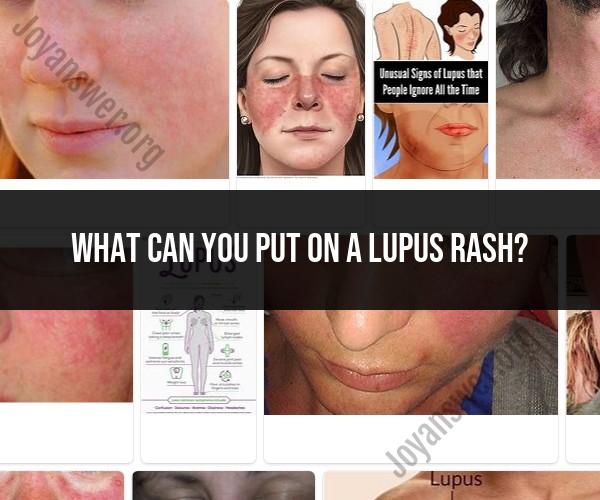What can you put on a lupus rash?
Treating a lupus rash involves a combination of medical care, topical remedies, and lifestyle strategies to manage symptoms and improve overall well-being. It's important to work closely with a healthcare professional to develop a personalized treatment plan. Here are some topical remedies and management strategies that can be considered:
1. Topical Treatments:
- Topical corticosteroids: These anti-inflammatory creams or ointments can help reduce redness, itching, and inflammation of the rash.
- Calcineurin inhibitors: These topical medications can be used for certain types of lupus rashes to help manage symptoms.
- Topical antihistamines: These may help relieve itching associated with the rash.
2. Sun Protection:
- Sun exposure can trigger or worsen lupus rashes. Use broad-spectrum sunscreen with a high SPF, wear protective clothing, and avoid direct sunlight during peak hours.
3. Cold Compresses:
- Applying cold compresses to the rash can help reduce inflammation and soothe itching.
4. Moisturizers:
- Keeping the skin moisturized with hypoallergenic creams or ointments can help prevent dryness and reduce irritation.
5. Avoid Triggers:
- Identify and avoid factors that trigger or exacerbate your rash, such as certain medications, stress, or exposure to allergens.
6. Medication Management:
- Work with your doctor to manage underlying lupus symptoms and flares. Proper management of lupus can help reduce the frequency and severity of rashes.
7. Stress Management:
- Stress can impact lupus symptoms. Practice stress-reduction techniques such as meditation, deep breathing, or yoga.
8. Diet and Lifestyle:
- Maintain a balanced diet rich in fruits, vegetables, whole grains, and lean proteins.
- Stay hydrated and limit alcohol consumption.
- Get regular exercise to improve circulation and overall health.
9. Prescription Medications:
- In more severe cases, your doctor may prescribe oral medications such as antimalarials, immunosuppressants, or biologics to manage lupus symptoms and rashes.
10. Regular Medical Check-ups:
- Regular follow-up appointments with your healthcare provider are important to monitor your condition, adjust medications, and address any concerns.
It's important to note that lupus is a complex autoimmune condition, and treatment approaches can vary based on the individual's symptoms, medical history, and overall health. Always consult with a healthcare professional before starting any new treatment or making changes to your current regimen.












